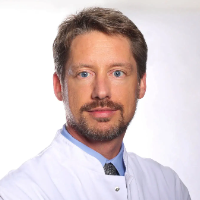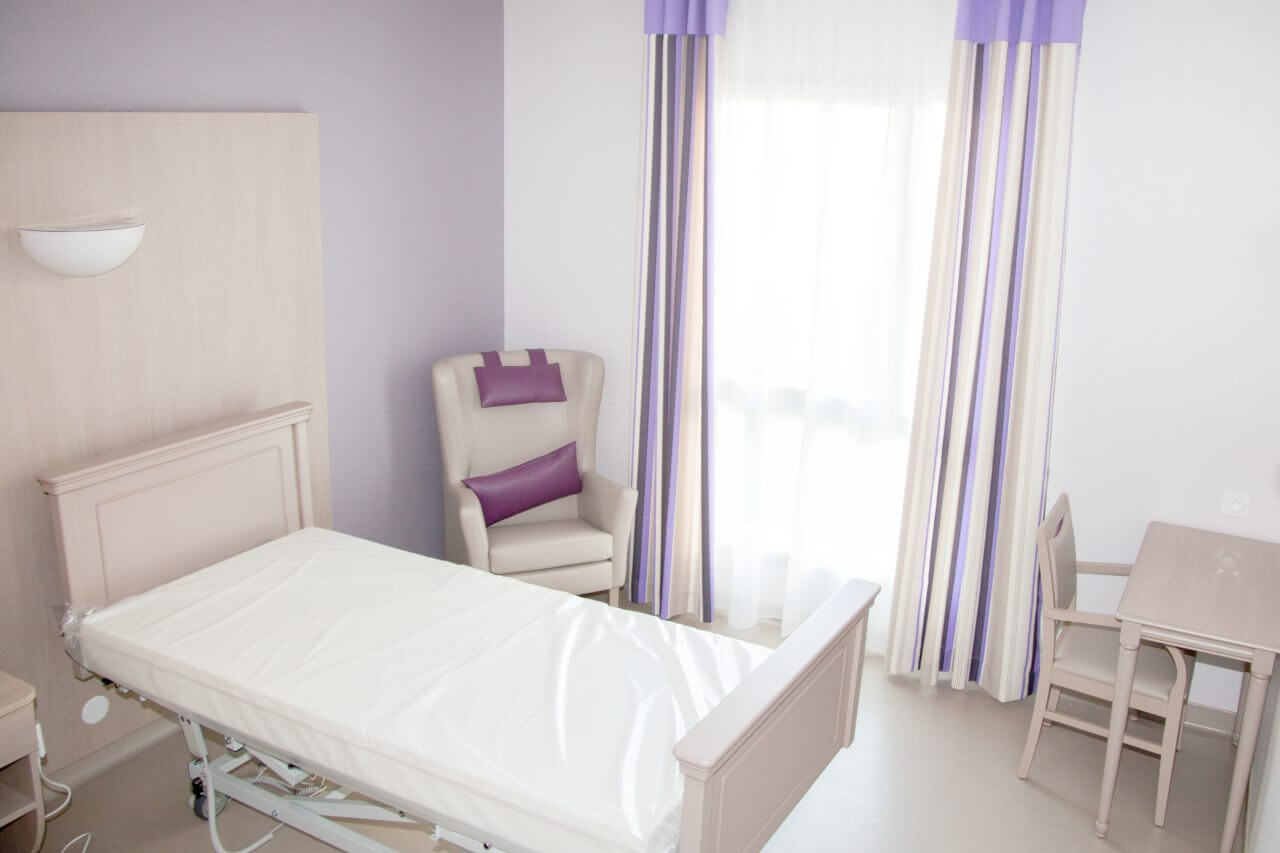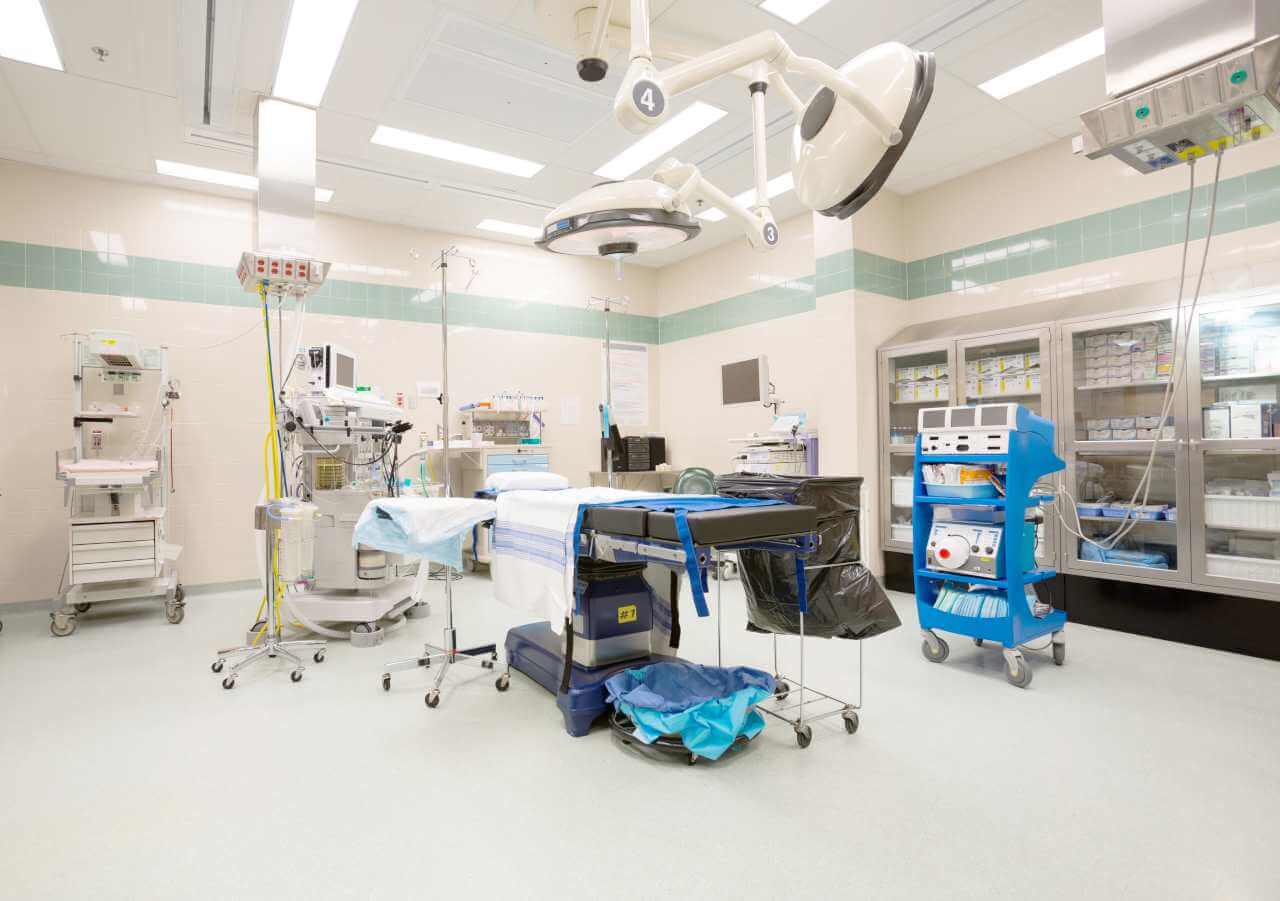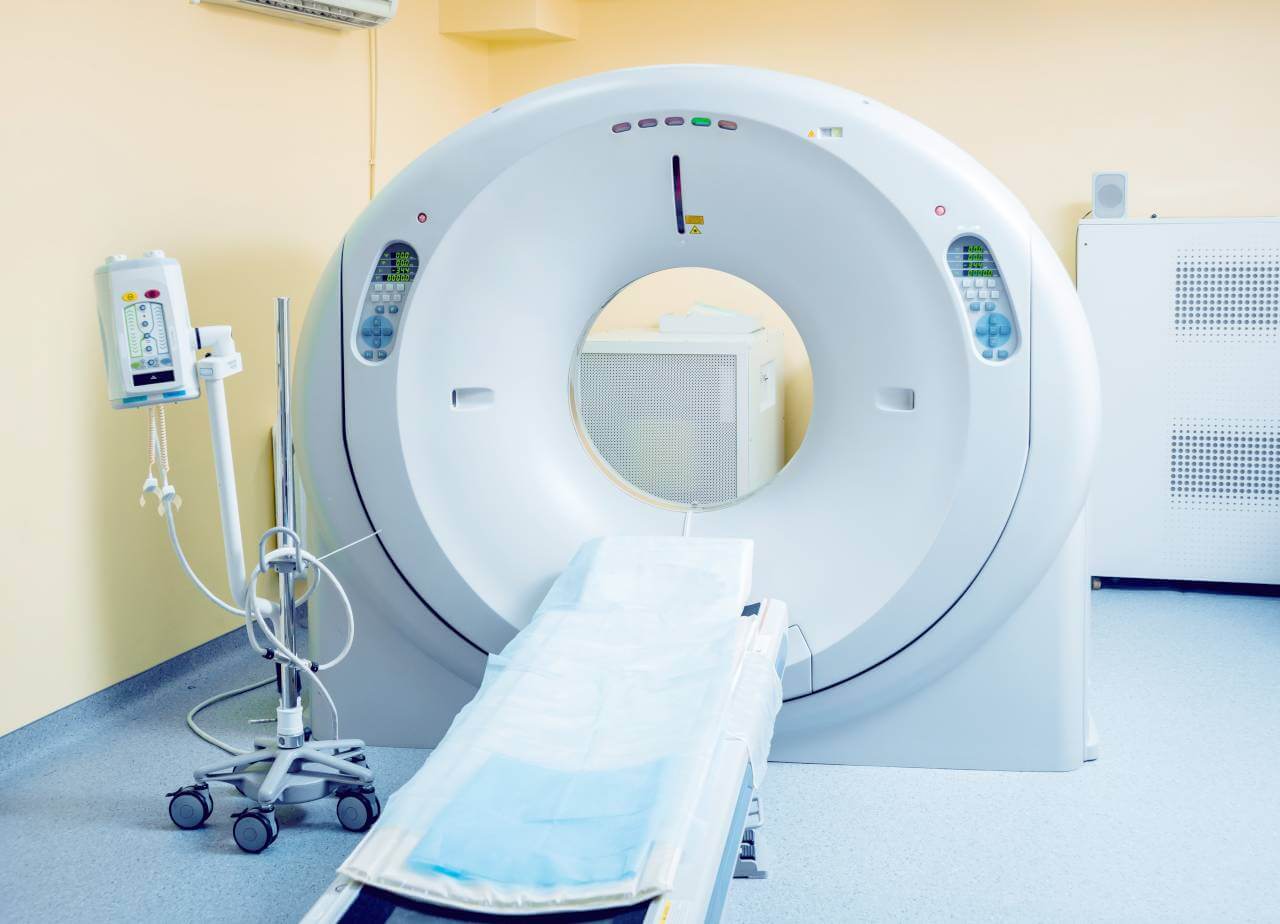
The program includes:
- Initial presentation in the clinic
- clinical history taking
- physical examination
- review of medical records
- laboratory tests:
- complete blood count
- general urine analysis
- biochemical analysis of blood
- TSH-basal, fT3, fT4
- indicators of inflammation (CRP, ESR)
- indicators blood coagulation
- abdominal ultrasound
- CT/MRI abdomen
- ERCP with endoscopic bougienage and stent implantation
- symptomatic treatment
- control examinations
- the cost of essential medicines and materials
- nursing services
- nutrition recommendations
- full hospital accommodation
- explanation of future recommendations
Required documents
- Medical records
- Abdominal ultrasound (if available)
- Abdominal MRI/CT scan (if available)
Service
You may also book:
 BookingHealth Price from:
BookingHealth Price from:
About the department
The Department of Gastroenterology and Hepatology at the ISAR Hospital Munich offers the full range of medical services in its areas of expertise. The department diagnoses and treats diseases of the stomach, esophagus, all parts of the intestine, pancreas, gallbladder, bile ducts, rectum, and liver, with special emphasis on the treatment of oncological diseases. Great importance is attached to comprehensive treatment that takes into account the individual needs and wishes of the patient, with priority given to the use of the latest diagnostic and treatment methods in accordance with modern medical standards. The department has a well-developed direction of endoscopic diagnostics and treatment. It also has advanced ultrasound equipment and facilities for functional diagnostics of the gastrointestinal tract. The specialists of the medical institution annually perform more than 5,400 gastroscopy and colonoscopy procedures, as well as more than 2,600 ultrasound scans. The high professionalism of the department's doctors and outstanding treatment results deserve special attention. The specialists work hand in hand with abdominal surgeons, which is especially important in the case of gastrointestinal cancers. The department is headed by PD Dr. med. Holger Seidl.
The department has a wealth of experience in providing medical care for patients with colon diseases. Of particular interest is the diagnosis and treatment of intestinal polyps, which can potentially lead to cancer. This can be prevented by diagnostic colonoscopy, an endoscopic method of examining the inner surface of the intestine with a special device (a colonoscope). For maximum patient comfort, the diagnostic procedure is performed under sedation. If polyps are detected, the department's doctors immediately resect them using polypectomy, endoscopic mucosal resection, or endoscopic submucosal dissection. To remove large intestinal polyps, the specialists in the department use laser techniques or full-thickness resection with the innovative FTRD device. In some cases, colon cancer is diagnosed based on the results of a colonoscopy. In such situations, abdominal surgeons, oncologists, radiologists, and other specialists from related medical specialties are involved in the therapeutic process. The medical team jointly develops the optimal treatment regimen: in early stages, resection of the malignant neoplasm is sufficient, while in advanced stages, surgery is required, supplemented by chemotherapy, radiation therapy, and other treatments.
The department's team of gastroenterologists also excels in the treatment of many other intestinal diseases, including Crohn's disease, ulcerative colitis, gastrointestinal bleeding, irritable bowel syndrome, chronic constipation, diverticular disease, and fecal incontinence. The first-line treatment for the above conditions is medication, but when this fails, doctors recommend endoscopic procedures.
An important area of the work of the department's gastroenterologists is the diagnosis and treatment of gastritis, stomach ulcers, and stomach cancer. If gastritis or a stomach ulcer is suspected, the department's doctors perform a series of laboratory tests, gastroscopy, and endosonography. The basis of treatment is drug therapy in combination with a diet. The department also treats patients with stomach cancer, which is one of the most common oncological diseases in the world. The key focus is on prevention. To this end, the department performs gastroscopy, an endoscopic examination that allows visual inspection of the lining of the esophagus, stomach, and duodenum. An early stage stomach malignancy can be removed with an endoscopic therapeutic procedure. In the advanced stages of stomach cancer, surgery combined with chemotherapy and radiation therapy is required.
The medical facility also offers services in the field of hepatology. Doctors of this specialty diagnose and treat liver diseases such as benign and malignant tumors, cirrhosis, hepatitis, etc. Many patients with liver cirrhosis seek medical help from the department. This is a chronic, progressive disease in which liver tissue is replaced by non-functional connective tissue. The main manifestations of the disease are increased fatigue, lack of appetite, weight loss, itching, yellowing of the skin, bloating, and swelling of the lower extremities. The classic diagnostic protocol for suspected liver cirrhosis includes laboratory tests, portal vein Doppler ultrasound, gastroscopy, liver elastography, CT and/or MRI, and an ultrasound-guided liver biopsy. If the diagnosis is confirmed, a personalized drug treatment regimen is developed, and a diet is prescribed. The specialists' task is to eliminate the cause of the disease, stop the symptoms, slow down the pathological process, and prevent the development of complications. In the advanced stages of cirrhosis of the liver, serious complications may occur, such as ascites, portal hypertension, liver cancer, hepatic encephalopathy or esophageal varices. The department's doctors have the necessary resources to effectively treat complications of cirrhosis.
The department's range of medical services includes the following:
- Gastroenterology
- Diagnostics and treatment of colon diseases
- Colon polyps
- Chronic inflammatory bowel disease: Crohn's disease and ulcerative colitis
- Gastrointestinal bleeding
- Irritable bowel syndrome
- Chronic constipation
- Diarrhea
- Diverticular disease
- Colon cancer
- Diagnostics and treatment of stomach diseases
- Gastritis
- Stomach ulcers
- Stomach cancer
- Diagnostics and treatment of esophageal diseases
- Gastroesophageal reflux disease
- Esophageal cancer
- Diagnostics and treatment of pancreatic diseases
- Pancreatitis
- Pancreatic cancer
- Diagnostics and treatment of rectal diseases
- Hemorrhoids
- Anal fistulas
- Anal abscesses
- Fecal incontinence
- Diagnostics and treatment of colon diseases
- Hepatology
- Diagnostics and treatment of liver diseases
- Benign liver tumors
- Liver cancer
- Cirrhosis
- Hepatitis
- Diagnostics and treatment of gallbladder and bile duct diseases
- Gallstone disease
- Biliary colic
- Cholecystitis
- Cholangiocarcinoma
- Diagnostics and treatment of liver diseases
- Other medical services
Curriculum vitae
PD Dr. med. Holger Seidl holds the position of Head Physician of the Department of Gastroenterology and Hepatology at the ISAR Hospital Munich. The doctor specializes in endoscopic diagnosis and treatment of gastrointestinal diseases, treatment of oncological diseases of the digestive system, functional intestinal disorders, and liver diseases. Dr. Holger Seidl has more than 15 years of successful clinical practice. For more than 7 years, he worked as a Senior Physician in the Department of Gastroenterology at the Hospital Bogenhausen Munich, one of the largest and most prestigious hospitals in Munich.
Dr. Holger Seidl studied medicine in Munich, Bern, and New York. He received a study scholarship from the State of Bavarian and the Cornell University Program at the Technical University of Munich. The doctor completed his residency in Internal Medicine and Gastroenterology at the Hospital Bogenhausen Munich. Dr. Seidl defended his habilitation work at the Technical University of Munich. His thesis was on the physiology and pathophysiology of the motility of the small intestine.
Dr. Seidl is a certified specialist in the treatment of gastrointestinal cancers (certificate from the German Society for Gastroenterology, Digestive and Metabolic Diseases, DGVS) and has additional qualifications in tumor drug therapy. The specialist has extensive experience in the field of emergency medicine. He worked as Deputy Head of the Emergency Medical Service at the Hospital Bogenhausen Munich.
PD Dr. med. Holger Seidl is the author of more than 50 scientific papers on the treatment of gastroenterological diseases.
Memberships in Professional Societies
- German Society of Internal Medicine (DGIM).
- German Society for Gastroenterology, Digestive and Metabolic Diseases (DGVS).
- Professional Association of German Gastroenterologists (BVGD).
- German Society for Neurogastroenterology and Motility (DGNM).
- American Gastroenterological Association (AGA).
- German Society for the Fight against Diseases of the Stomach, Intestines and Liver, as well as Metabolic and Nutritional Disorders (Gastro League).
Photo of the doctor: (c) ISAR Klinikum
About hospital
The ISAR Hospital Munich first opened its doors to patients in March 2008 and took a leading position among the top medical facilities in the city of Munich in a short time. The hospital embodies a progressive concept of international medical care: diagnostics and treatment are carried out using the latest medical advances, while the patient receives comprehensive care in a pleasant environment. The work of the medical complex is based on an individual approach to each patient and their clinical case.
The ISAR Hospital Munich has 12 specialized departments, each of which treats a specific group of diseases. The medical facility has particularly successful results in the surgical treatment of diseases of the gastrointestinal tract, heart disease, musculoskeletal pathologies, spinal conditions, and urological pathologies. The hospital has a large medical team, which includes more than 850 employees, including well-known professors in professional circles. More than 140,000 patients come here for medical care every year, which indicates the hospital's excellent reputation and a high level of trust among patients. The hospital has 250 beds.
In addition to having highly qualified medical staff, the hospital is proud of its excellent technical base, which largely determines the quality of treatment. In this context, it is worth noting the hospital's operating rooms, which are equipped with state-of-the-art devices. For example, the hospital has the da Vinci robotic system. Robot-assisted operations for gastrointestinal diseases are successfully performed with its help, and the medical complex is one of the few in Germany and Europe that can offer such treatment. The operating rooms of the Department of Spinal Surgery are equipped with the O-Arm intraoperative computed tomography system. This equipment allows for the highest accuracy and safety of surgical manipulations on the spine, because the slightest mistake may lead to disability. The O-Arm device belongs to the category of expensive medical equipment, so not every hospital in Europe can afford it.
The quality of medical services at the ISAR Hospital Munich has been awarded with many prestigious certificates, including the ISO 9001:2015 certificate, the IQM certificate, the certification of the German Society for General and Abdominal Surgery (DGAV) as a Center of Excellence for Minimally Invasive Surgery, the certificate of the German Society of Cardiology (DGK) for outstanding achievements in the treatment of acute coronary syndrome, the certificate of the German Knee Society (DKG), and others.
Photo: (с) depositphotos
Accommodation in hospital
Patients rooms
Patients at the ISAR Hospital Munich stay in comfortable single and double rooms. Each patient room has an ensuite bathroom with a shower and a toilet; the bathrooms are equipped to meet the needs of patients with physical disabilities. The furnishings of a standard patient room include a comfortable, automatically adjustable bed, a bedside table with a pull-out tray, a wardrobe, a table and chairs, a TV, a telephone, and a radio. All patient rooms have access to Wi-Fi.
The hospital also offers accommodations in enhanced-comfort rooms. These patient rooms are more spacious and have a more sophisticated design. Enhanced-comfort rooms additionally have a mini-fridge, a minibar, and a safe for storing valuables. The bathroom has toiletries, towels, a bathrobe, and a hairdryer. Upon request, it is possible to stay in an enhanced-comfort room with a private terrace.
Meals and Menus
Patients in the hospital are offered three balanced meals a day: breakfast, lunch, and dinner. If, for some reason, you do not eat all the foods, you will be offered an individual menu. Please inform the medical staff about your dietary preferences before starting treatment.
There is also a cafe on site, offering a wide range of hot and cold dishes, snacks, drinks, and desserts.
Further details
Standard rooms include:
![]() Toilet
Toilet
![]() Shower
Shower
![]() Wi-Fi
Wi-Fi
![]() TV
TV
Accompanying person
Your accompanying person may stay with you in your patient room or at the hotel of your choice during the inpatient program.
Hotel
You may stay at the hotel of your choice during the outpatient program. Our managers will support you for selecting the best option.





